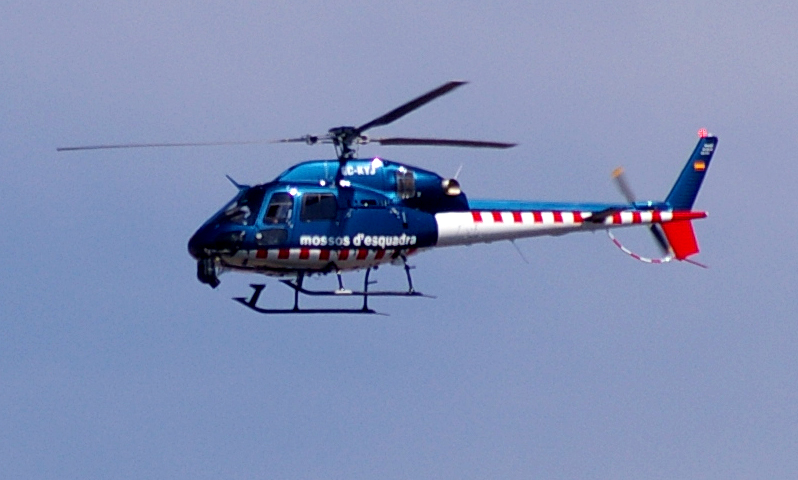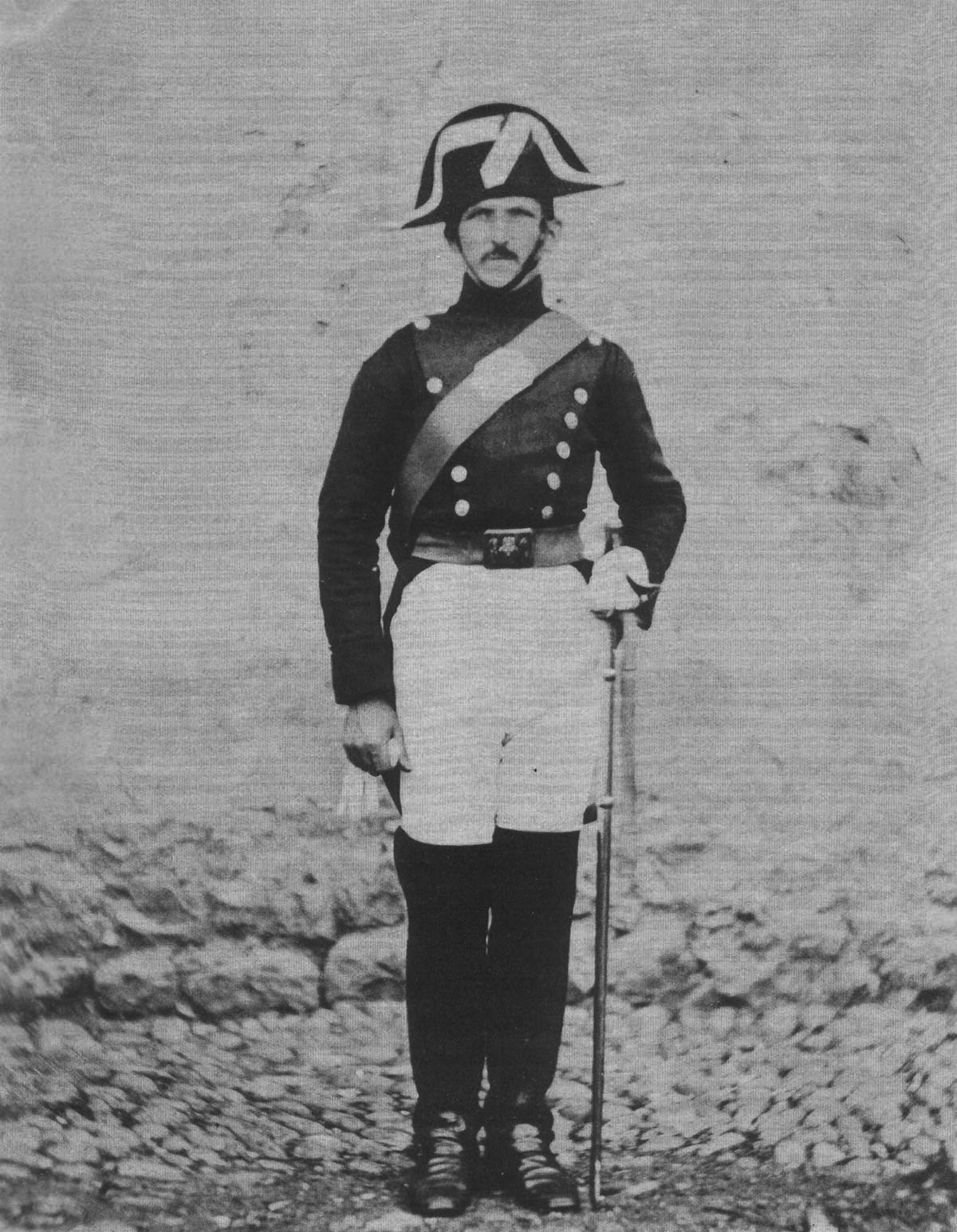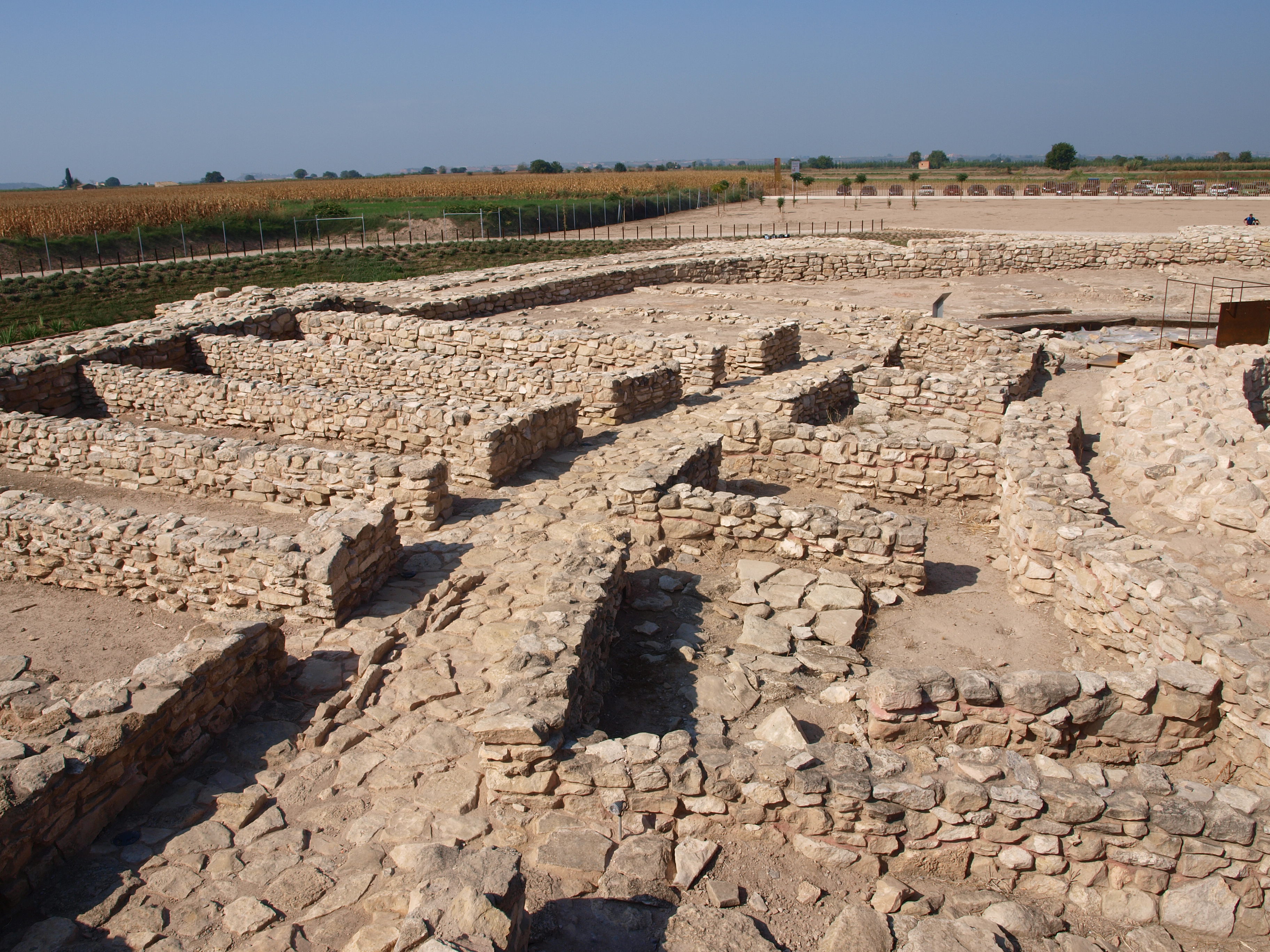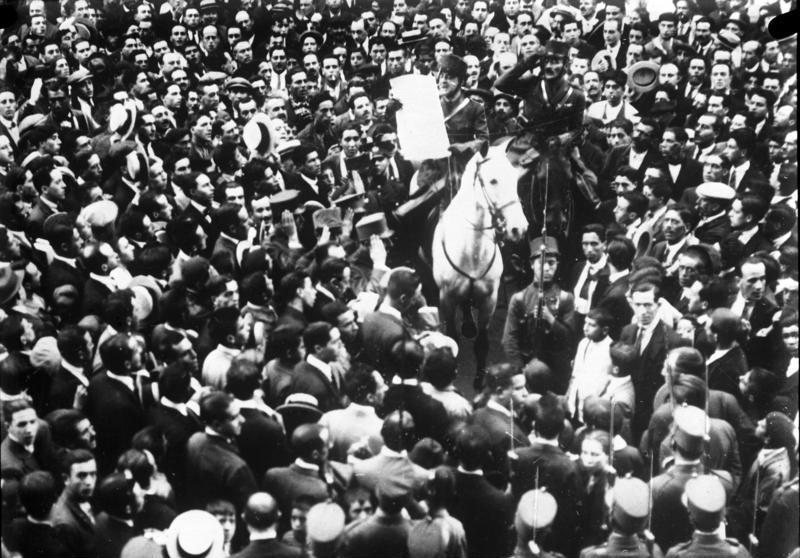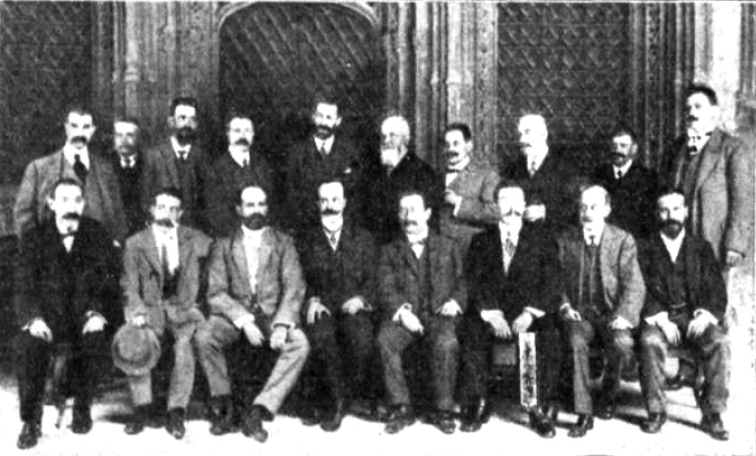|
Mossos D'Esquadra
The ''Mossos d'Esquadra'' (; en, Squad), also known as the ''Policia de la Generalitat de Catalunya'' and informally as ''Mossos'', is the autonomous police force responsible for law enforcement in Spanish autonomous community of Catalonia. They trace their origins back to squads formed in 1719. History On 21 July 1950 the Deputation of Barcelona was authorised to create a small security force using the historical title ''Mossos d'Esquadra''. These new Mossos were a militarized corps having little similarity to the earlier incarnations, with limited powers and small numbers, which was in charge of protecting the government buildings of the Province of Barcelona. With the return of democracy to Spain, the Mossos d'Esquadra grew in number and powers. Since 25 October 1980 the force has been under the authority of the Generalitat de Catalunya (the Government of Catalonia). Previous Catalan forces The , later known as the , (and informally known as the ), were men-at-arms who ... [...More Info...] [...Related Items...] OR: [Wikipedia] [Google] [Baidu] |
Catalonia
Catalonia (; ca, Catalunya ; Aranese Occitan: ''Catalonha'' ; es, Cataluña ) is an autonomous community of Spain, designated as a ''nationality'' by its Statute of Autonomy. Most of the territory (except the Val d'Aran) lies on the northeast of the Iberian Peninsula, to the south of the Pyrenees mountain range. Catalonia is administratively divided into four provinces: Barcelona, Girona, Lleida, and Tarragona. The capital and largest city, Barcelona is the second-most populated municipality in Spain and the fifth-most populous urban area in the European Union.Demographia: World Urban Areas – Demographia, April 2018 Current day Catalonia comprises most of the medieval and early modern Principality o ... [...More Info...] [...Related Items...] OR: [Wikipedia] [Google] [Baidu] |
Guardia Civil (Spain)
The Civil Guard ( es, Guardia Civil, link=no; ) is the oldest law enforcement agency in Spain and is one of two national police forces. As a national gendarmerie force, it is military in nature and is responsible for civil policing under the authority of both the Ministry of the Interior and the Ministry of Defence. The role of the Ministry of Defence is limited except in times of war when the Ministry has exclusive authority. The corps is colloquially known as the ' (reputable). In annual surveys, it generally ranks as the national institution most valued by Spaniards, closely followed by other law enforcement agencies and the armed forces. It has both a regular national role and undertakes specific foreign peacekeeping missions and is part of the European Gendarmerie Force. As a national gendarmerie force, the Civil Guard was modelled on the French National Gendarmerie and has many similarities. As part of its daily duties, the Civil Guard patrols and investigates crimes in ... [...More Info...] [...Related Items...] OR: [Wikipedia] [Google] [Baidu] |
Statute Of Autonomy Of Catalonia
The Statute of Autonomy of Catalonia of 2006 ( ca, Estatut d’Autonomia de Catalunya) provides Catalonia's basic institutional regulations under the Spanish Constitution of 1978. It defines the rights and obligations of the citizens of Catalonia, the political institutions of the Catalan community, their competences and relations with the rest of Spain, and the financing of the Government of Catalonia. This Law was approved by referendum on 18 June 2006 and supplanted the first Statute of Sau, which dated from 1979. The approval was given by the 36% of Catalan people with the right to vote. Abstention in the referendum was high: more than 50%. On 28 June 2010, the Constitutional Court of Spain assessed the constitutionality of several articles of the Law, rewriting 14 of them and dictating the interpretation for 27 more. That led to a massive demonstration in Barcelona of more than a million people under the slogan in Catalan ''Som una nació. Nosaltres decidim'' (in English, ... [...More Info...] [...Related Items...] OR: [Wikipedia] [Google] [Baidu] |
Barcelona
Barcelona ( , , ) is a city on the coast of northeastern Spain. It is the capital and largest city of the autonomous community of Catalonia, as well as the second most populous municipality of Spain. With a population of 1.6 million within city limits,Barcelona: Población por municipios y sexo – Instituto Nacional de Estadística. (National Statistics Institute) its urban area extends to numerous neighbouring municipalities within the and is home to around 4.8 million people, making it the [...More Info...] [...Related Items...] OR: [Wikipedia] [Google] [Baidu] |
National Police Corps
The National Police Corps ( es, Cuerpo Nacional de Policía, link=no, CNP; ; also known simply as National Police, ) is the national civilian police, police force of Spain. The CNP is mainly responsible for policing urban areas, whilst rural policing is generally the responsibility of the Guardia Civil, Civil Guard, the Spanish national gendarmerie force. The CNP operates under the authority of Spain's Ministry of the Interior (Spain), Ministry of the Interior. They mostly handle Criminal law, criminal investigation, judicial, terrorism and immigration matters. The powers of the National Police Corps varies according to the autonomous communities. For example, Ertzaintza in the Basque Country (autonomous community), Basque Country and Mossos d'Esquadra in Catalonia are the primary police agencies. In Navarra they share some duties jointly with Policía Foral (Foruzaingoa). History The 1986 organic law unifying the separate uniformed and plainclothes branches of the national p ... [...More Info...] [...Related Items...] OR: [Wikipedia] [Google] [Baidu] |
Catalunya Mossos D'Esquadra Helicòpter
Catalonia (; ca, Catalunya ; Aranese Occitan: ''Catalonha'' ; es, Cataluña ) is an autonomous community of Spain, designated as a ''nationality'' by its Statute of Autonomy. Most of the territory (except the Val d'Aran) lies on the northeast of the Iberian Peninsula, to the south of the Pyrenees mountain range. Catalonia is administratively divided into four provinces: Barcelona, Girona, Lleida, and Tarragona. The capital and largest city, Barcelona is the second-most populated municipality in Spain and the fifth-most populous urban area in the European Union.Demographia: World Urban Areas – Demographia, April 2018 Current day Catalonia comprises most of the medieval and early modern |
Francisco Franco
Francisco Franco Bahamonde (; 4 December 1892 – 20 November 1975) was a Spanish general who led the Nationalist faction (Spanish Civil War), Nationalist forces in overthrowing the Second Spanish Republic during the Spanish Civil War and thereafter ruled over Spanish State, Spain from 1939 to 1975 as a dictator, assuming the title ''Caudillo''. This period in Spanish history, from the Nationalist victory to Franco's death, is commonly known as Francoist Spain or as the Francoist dictatorship. Born in Ferrol, Spain, Ferrol, Galicia (Spain), Galicia, into an upper-class military family, Franco served in the Spanish Army as a cadet in the Toledo Infantry Academy from 1907 to 1910. While serving in Spanish protectorate in Morocco, Morocco, he rose through the ranks to become a brigadier general in 1926 at age 33, which made him the #Military career, youngest general in all of Europe. Two years later, Franco became the director of the General Military Academy in Zaragoza. A ... [...More Info...] [...Related Items...] OR: [Wikipedia] [Google] [Baidu] |
Spanish Civil War
The Spanish Civil War ( es, Guerra Civil Española)) or The Revolution ( es, La Revolución, link=no) among Nationalists, the Fourth Carlist War ( es, Cuarta Guerra Carlista, link=no) among Carlists, and The Rebellion ( es, La Rebelión, link=no) or The Uprising ( es, La Sublevación, link=no) among Republicans. was a civil war in Spain fought from 1936 to 1939 between the Republicans and the Nationalists. Republicans were loyal to the left-leaning Popular Front government of the Second Spanish Republic, and consisted of various socialist, communist, separatist, anarchist, and republican parties, some of which had opposed the government in the pre-war period. The opposing Nationalists were an alliance of Falangists, monarchists, conservatives, and traditionalists led by a military junta among whom General Francisco Franco quickly achieved a preponderant role. Due to the international political climate at the time, the war had many facets and was variously viewed as cla ... [...More Info...] [...Related Items...] OR: [Wikipedia] [Google] [Baidu] |
Second Spanish Republic
The Spanish Republic (), commonly known as the Second Spanish Republic (), was the form of government in Spain from 1931 to 1939. The Republic was proclaimed on 14 April 1931, after the deposition of Alfonso XIII, King Alfonso XIII, and was dissolved on 1 April 1939 after surrendering in the Spanish Civil War to the Nationalist faction (Spanish Civil War), Nationalists led by General Francisco Franco. After the proclamation of the Republic, Provisional Government of the Second Spanish Republic, a provisional government was established until December 1931, at which time the Spanish Constitution of 1931, 1931 Constitution was approved. During this time and the subsequent two years of constitutional government, known as the First Biennium, Reformist Biennium, Manuel Azaña's executive initiated numerous reforms to what in their view would modernize the country. In 1932 the Jesuits, who were in charge of the best schools throughout the country, were banned and had all their propert ... [...More Info...] [...Related Items...] OR: [Wikipedia] [Google] [Baidu] |
Miguel Primo De Rivera
Miguel Primo de Rivera y Orbaneja, 2nd Marquess of Estella (8 January 1870 – 16 March 1930), was a dictator, aristocrat, and military officer who served as Prime Minister of Spain from 1923 to 1930 during Spain's Restoration era. He deeply believed that it was the politicians who had ruined Spain and that by governing without them, he could restore the nation. His slogan was "Country, Religion, Monarchy." On the death of his uncle in 1921 he became Marquess of Estella. With the support of King Alfonso XIII and the army, Primo de Rivera led a Mussolini-inspired military coup on 13 September 1923.Television documentary from CC&C Ideacom Production,"Apocalypse Never-Ending War 1918-1926", part 2, aired on DR K on 22 October 2018 He was appointed Prime Minister by the King. He promised to eliminate corruption and to regenerate Spain. In order to do this he suspended the constitution, established martial law, imposed a strict system of censorship, and ended the ''turno'' ( spo ... [...More Info...] [...Related Items...] OR: [Wikipedia] [Google] [Baidu] |
Commonwealth Of Catalonia
The Commonwealth of Catalonia ( ca, Mancomunitat de Catalunya, ) was a deliberative assembly made up of the councillors of the four provinces of Catalonia. Promoted in its final stages of gestation by the Regionalist League of Catalonia, it was strongly endorsed by municipal referendum in October 1913. The Commonwealth was created in 1914 (symbolically the 200th anniversary of the year of the loss of governing institutions independent of the Spanish central administration) and was disbanded and outlawed in 1925 during Miguel Primo de Rivera's dictatorship. Although it had only administrative functions and its powers did not go beyond those of the provincial councils, it had great symbolic and practical importance: it represented the first recognition by the Spanish State of the identity and territorial unity of Catalonia since 1714. and was responsible for the creation of many public institutions in health, culture and technical education and science and notably for the suppor ... [...More Info...] [...Related Items...] OR: [Wikipedia] [Google] [Baidu] |
Alfonso XIII Of Spain
Alfonso XIII (17 May 1886 – 28 February 1941), also known as El Africano or the African, was King of Spain from 17 May 1886 to 14 April 1931, when the Second Spanish Republic was proclaimed. He was a monarch from birth as his father, Alfonso XII, had died the previous year. Alfonso's mother, Maria Christina of Austria, served as regent until he assumed full powers on his sixteenth birthday in 1902. Alfonso XIII's upbringing and public image were closely linked to the military estate, often presenting himself as a soldier-king. His effective reign started four years after the so-called 1898 Disaster, with various social factions projecting their expectations of national regeneration upon him. Similarly to other European monarchs of his time, he played an important political role, entailing a highly controversial use of his constitutional executive powers. His wedding with Victoria Eugenie of Battenberg in 1906 was marked by a regicide attempt, from which he escaped unha ... [...More Info...] [...Related Items...] OR: [Wikipedia] [Google] [Baidu] |
